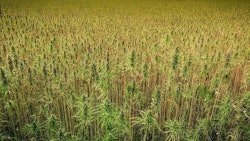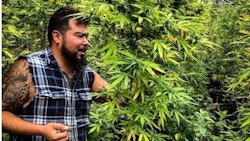Pennsylvania state officials will be working to bring attention to hemp during its annual farm show, including a presentation for students about hemp plastic as a sustainable material.
The virtual event, Cultivating Tomorrow, occurs Jan. 9-16 and includes sessions on hemp that review previous actions the state has taken and its future plans for the crop.
“After being banned by federal law for more than 80 years, Pennsylvania’s budding hemp industry is ripe for innovation and holds tremendous promise for the future,” Shannon Powers, a spokeswoman for the Pennsylvania Department of Agriculture, told Hemp Grower. “Fiber varieties of hemp promise seemingly endless opportunities for sustainable building materials, bioplastic industrial components, fabrics, and a myriad of other environmentally friendly materials.”
Sustainability will be a focus of Science, Technology, Engineering, and Mathematics (STEM) educational programming provided to students each day of the show. These STEM sessions include a Jan. 12 presentation about bioplastics, including hemp-based products. “Daily STEM demonstrations of at-home activities for K-12 students will include lessons on how to make butter, plant-based plastics made from hemp and other sustainable materials,” according to a press release.
Sustainability is especially relevant for the hemp industry, given the incoming Biden administration’s focus on the issue as one of its priorities.
There will also be a panel discussion on Jan. 11 by members of the Pennsylvania Hemp Steering Committee to explain their vision for the future of the state’s hemp industry. This includes efforts to develop an economic and workforce development plan in partnership with the state’s Department of Agriculture and industry members, ranging from farmers and processors to product designers, merchandisers, and consumers.
Also, there is a Jan. 13 panel discussion, Cultivating Impact—A Year in Review of Pennsylvania’s First Farm Bill—that explores what the state has done so far to build the hemp industry. For example, the state granted nearly $233,000 in state Specialty Crop Block Grants to five grantees to advance the new industry.


























